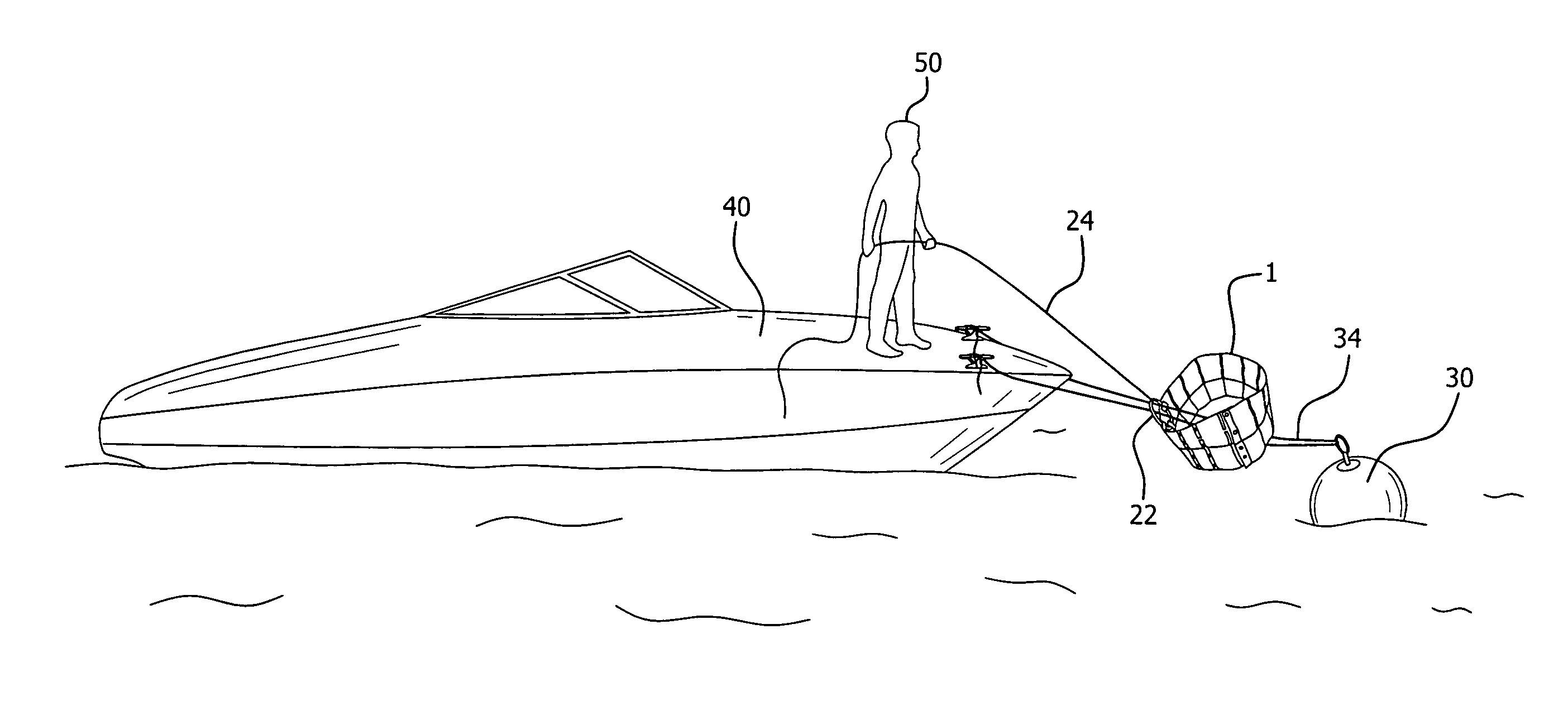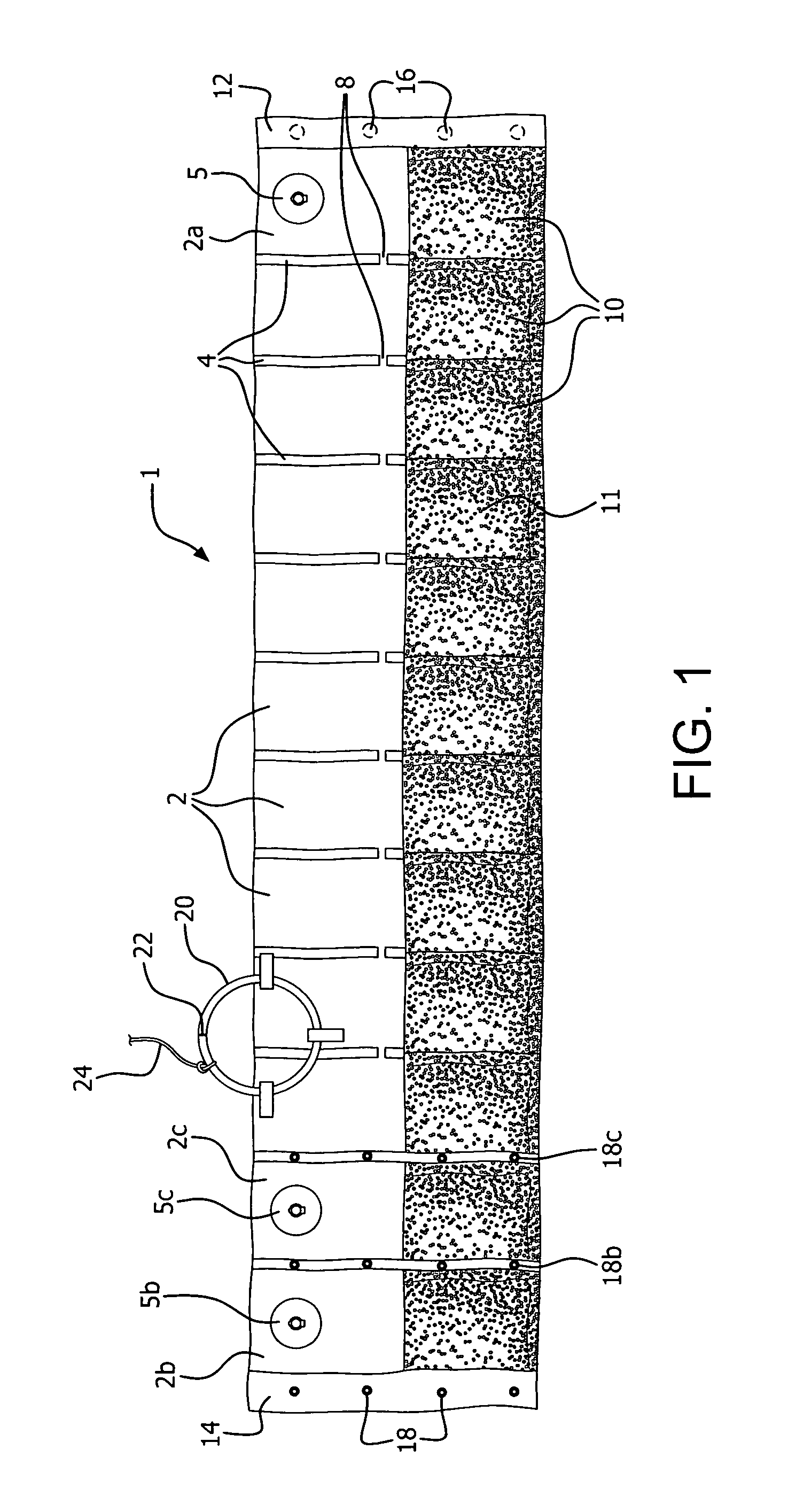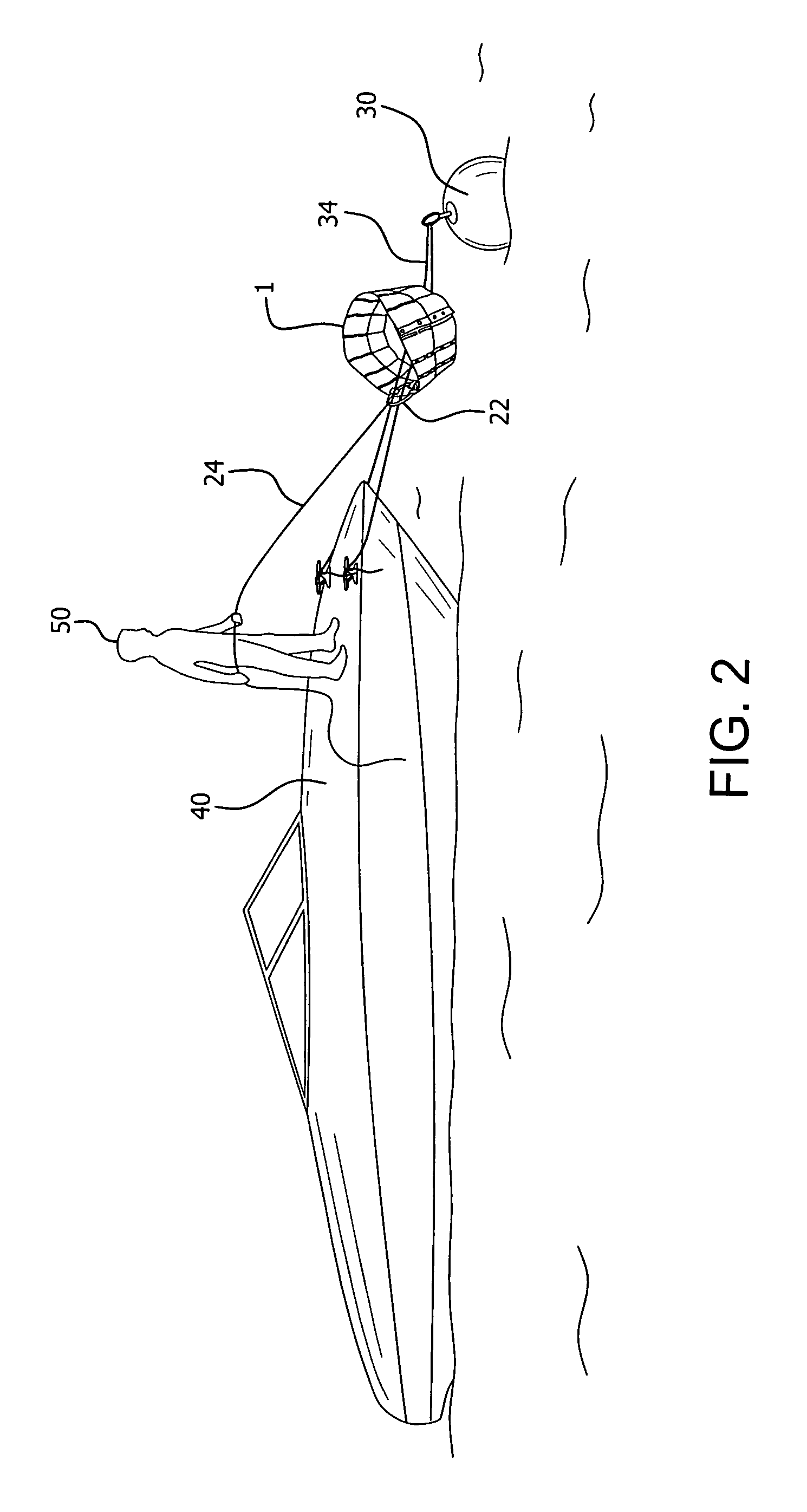Protective cover for a mooring buoy and method of deployment
a technology for protecting covers and mooring buoys, which is applied in special-purpose vessels, vessel construction, transportation and packaging, etc., can solve problems such as scraping and marring of vessel hulls, compulsion of vessel hulls to come into contact, and significant noise and vessel damag
- Summary
- Abstract
- Description
- Claims
- Application Information
AI Technical Summary
Benefits of technology
Problems solved by technology
Method used
Image
Examples
Embodiment Construction
[0015]Protective buoy cover 1 comprises a plurality of air-tight, interconnected protective buoyant chambers 2, one adjacent to the other. Chambers 2 are separated by flexible spacers 4, optimally made of flexible, bendable plastic material. Chambers 2 can be air-filled sections, easily inflatable by means of air valve 5. Air entering chamber 2a via air valve 5 travels through air passages 8 within spacers 4 between the chambers, to inflate all the chambers. In lieu of inflatable sections, chambers 2 can be filled with buoyant, closed cell foam or equivalent buoyant material to provide the buoyant characteristics required for buoy cover 1. A plurality of sealed ballast filled chambers 10 is located adjacent to and beneath chambers 2. Ballast chambers 10 can be filled with sand 11 or equivalent weighted material.
[0016]Snaps or equivalent connectors 16 and 18 are configured to securely mate. These are provided at ends 12 and 14 of buoy cover 1. The connectors are designed to secure th...
PUM
 Login to View More
Login to View More Abstract
Description
Claims
Application Information
 Login to View More
Login to View More - R&D
- Intellectual Property
- Life Sciences
- Materials
- Tech Scout
- Unparalleled Data Quality
- Higher Quality Content
- 60% Fewer Hallucinations
Browse by: Latest US Patents, China's latest patents, Technical Efficacy Thesaurus, Application Domain, Technology Topic, Popular Technical Reports.
© 2025 PatSnap. All rights reserved.Legal|Privacy policy|Modern Slavery Act Transparency Statement|Sitemap|About US| Contact US: help@patsnap.com



